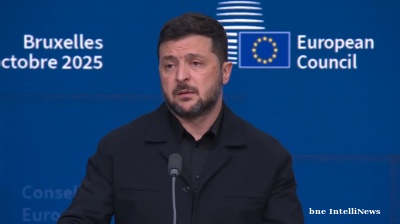Russian telecom watchdog Roskomnadzor could not effectively enforce country-wide ban on Telegram messenger, disturbing the work of dozens of unrelated services as a result of blanket blocking of eighteen Amazon and Google IP address clusters and close to 20mn IP addresses altogether.
"The battle of shell and armour is being waged," the head of the watchdog Alexander Zharov said of the efforts to block the messenger on April 17, by blocking IP addresses to which Telegram migrates in an effort to dodge the ban in Russia.
Each time a user now connects to the messenger it receives a new IP address issues from Amazon and Google could platforms, which Roskomnadzor is then trying to block through all mobile and internet operators in the country.
Reports of dozens of online businesses that experienced disruption or were shut down as contingency, such as Viber VoIP, Microsoft's Xbox, Volvo car dealerships and service centres, delivery services, banks and retail chains, were dismissed by the watchdog as inaccurate. Roskomnadzor also warned that it will start blocking VPN services and proxy servers that might be used to access Telegram.
In the meantime the war against Telegram threatens to seriously undermine digital investment environment in Russia, as the watchdog also warned global digital majors Facebook, Amazon, and Google.
By the end of 2018 Facebook will be scrutinised for compliance with Russian legislation, especially concerning storing data on Russian users on country's territory and removing all banned content, Zharov told Izvestya daily, with the blocking of world's largest social network possibly "on agenda" if it fails to comply.
As for Amazon and Google, whose cloud and hosting services are helping Telegram to resist Roskomnadzor, Zharov suggested that "they would need to decide whether they want to work in Russia or not," without specifying possible measures against the companies.
The potentially damaging campaign against Telegram has already received pushback from the government officials, with Deputy Communication Minister Alexei Volin calling state regulation of internet "excessive" and "chaotic" at the opening of Russian Internet Forum 2018, as cited by Cnews.
Previously the founder of the messenger Pavel Durov pledged to develop in-app ways to access Telegram in Russia, which would serve a painful blow to Russia's image of cyber-warfare superpower.
"Telegram will use built-in methods to bypass the block, which do not require action from users, although 100% accessibility of the service without VPN [Virtual Private Network] is not guaranteed," Durov wrote on his page in VKontakte social network as cited by Tass on April 13.
Vedomosti daily noted that previously another banned messenger Zello used the same strategy as Telegram, migrating to cloud platforms such as Amazon Web Services that grant access to a large number of IP addresses. Roskomnadzor took a year to pass all the blocked IP addresses to mobile and internet operators and finally block Zello in Russia.
On April 16 Russian telecom watchdog Rostelecom said it started to enforce the court ruling blocking Telegram on the entire territory of Russian Federation, by issuing orders to telecom operators and internet providers to block access to the messenger.
"Privacy is not for sale," Durov wrote in response, while also adding that "at Telegram, we have the luxury of not caring about revenue streams or ad sales." The messenger founded by Russian digital entrepreneur Durov living in self-imposed political exile in London recently held two ICOs that raised a total of $1.7bn.
Roskomnadzor argued that Telegram breached the information security legislation passed in 2017 by refusing to share the encryption keys with authorities and security services. Telegram's already had numerous conflicts with Russian authorities and watchdogs and most recently the Iranian government said it will permanently block the messaging service by April 20.
Ironically, state officials and Duma deputies are regular users of the app, with Telegram "channels" becoming one of the instruments of political communication, filling the void of informal information exchange with the public in the sea of state-controlled top-bottom mass media. The messenger counts over 10mn users in Russia out of its 200mn global audience.
News
Category 5 hurricane Melissa bears down on Jamaica with Haiti and Cuba in storm's path
A catastrophic Category 5 hurricane was bearing down on Jamaica on Monday, October 27 afternoon with sustained winds of up to 282kph (175mph), threatening to become the strongest storm the Caribbean island has ever experienced.
.jpg)
US senator tells Maduro "head to Russia or China" as warships close in on Venezuela
A senior US Republican senator has warned that Venezuelan President Nicolás Maduro's time in power is running out and suggested he leave the country, as military tensions in the Caribbean continue to escalate.

Milei celebrates resounding victory in Argentina's midterm elections
Argentine President Javier Milei scored a major win for his La Libertad Avanza (LLA) party in Argentina's October 26 midterm legislative elections, as the party obtained approximately 40.84% of the nationwide vote with 99.14% of the votes counted.

Zelenskiy accuses China of aiding Russia’s war effort through industrial and military support
Ukrainian President Volodymyr Zelenskiy accused China of materially supporting Russia’s military-industrial complex, providing key technologies and resources that have enabled Moscow to sustain and scale its war effort against Ukraine.


